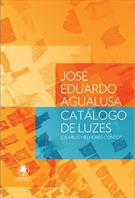
Arquivo para a ‘Libraries’ Categoria
Day and Web Librarian: a coincidence ?
 The day of the librarian is celebrated in Brazil on March 12 , interestingly this is the date which can also be considered the foundation of the World Wide Web , because on March 12, 1989, Tim Berners-Lee published an article on this ” layer “over the internet.
The day of the librarian is celebrated in Brazil on March 12 , interestingly this is the date which can also be considered the foundation of the World Wide Web , because on March 12, 1989, Tim Berners-Lee published an article on this ” layer “over the internet.
Yes this is the basic explanation on the Web , an application or a software that accesses information that is online from Internet addresses , though they have the same type of numbering of e- mails , locate servers that have a DNS (Date name System) , which is a kind of ” fancy name ” the actual address .
In a basic explanation , the web is a software to browse the information that is online . Its distinguishing characteristic is the ability to click on links to open the files on computers that can be anywhere .
Librarians who have had their day yesterday , I take to congratulate them , are guardians of the mission of dissemination of information and the democratic right of access to it , among which includes the printed book , but not just him , but all forms of information including culture, history and heritage information and it is also clear, digital information .
The information on the Web is still largely open and egalitarian as the speed , but the attempt to create a sub-Web , differentiating the public interests of trade exists , and has been the scene of much debate , including the Marco Civil Brasileiro (Brazilian Internet Civil Code), the internet law herein.
Among dreams, imagination and technology
Everything we want to dream, imagine and travel, even if at the cheap cost of the Web, seems to find skeptics, critics and fundamentalists warning us of the dangers.
But thankfully the planet continues to have utopian, dreamers and poets. I came across, these days, with one of these, simply a wonderful and unusual book of an Angolan writer, white and who as travelled a lot: José Eduardo Agualusa, I started flipping through the book and already ordered it online, but anxious and excited I asked a friend to get it in a library, for me.
It seems incredible, but like if it would be a divine light, I opened just in one page about his anthology “Catalogue of lights” that explained “Why is it so important to see stars”, I like to know about the stars, quantum physics and look to the sky, at night, from my house which is located on a dark street.
And Agualusa continues: “Having stopped to confront, every night, with the unlimited, the infinite, the awesome immensity of the universe – the men lost their humbleness, and with the humbleness they lost their reason, the madness of the world is, in her opinion, directly linked to the rural depopulation and the vertiginous multiplication of the big cities”.
Thanks! Dreamer, utopian and realistic José Eduardo Agualusa, dreamers give me courage, life and hope, excuse me the non- utopian, they are too bitter, the reality is hard enough.
All books digitalized in Norway
The news worried the publishing market, but Norway aims by 2020 to provide all the 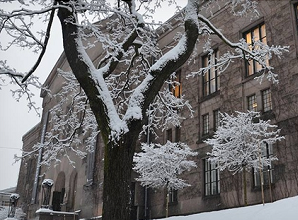 works that are available in the country , and made an audacious plan to the Norway National Library.
works that are available in the country , and made an audacious plan to the Norway National Library.
Also the books that are in other languages will be scanned, and the national control can be done through the IP (Internet Protocol on the computer) that is on your computer , this means that if you are in Norway can access the scanned books there and download, even though they have copyrights.
In other countries for selective access, i.e. e-books that are already free to download, can be accessed by ebooksgo.org page.
.
There are already cases of mass digitization in the UK and Finland , but Norway did something extra to make agreements with many publishers to allow any person with an IP address in Norway accessing a copyrighted material .
The library has equipment for scanning and analyzing text structure of the books . It will also include the addition of metadata and storing files in a database for easy retrieval , according to The Verge site .
Portuguese writer and brazilian faire
The international book fair of Ponta Grossa is an important event that is outside the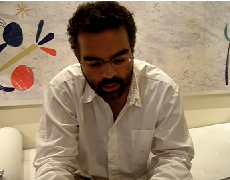 traditional axis Rio-São Paulo, completed in 9/15 and some new features to stand out.
traditional axis Rio-São Paulo, completed in 9/15 and some new features to stand out.
According to Efe Agency, one of them was the writer Portuguese, Angolan born, Gonçalo Tavares writes from 20 years, and says his challenge is the visual language, and literature for it is a way to “trace what can not see. ”
He sees in the literary field of new technologies, which is not the central theme of this art, for he sees that technologies do not “reinvent reading.”
The author of the acclaimed book “Jerusalem”, which is the ranking of Europe’s “1001 books to read before you die”, says having a sacred rhythm to write and takes refuge in his studio which for him is “a space of the 21st century where there is no connection with the world, with only the thoughts. ”
But there is another good story “Learning to pray in the age of technology” but speaks neither technology nor prayer, but something chilling to the limits of human experience, mapping the current era and then the disintegration of a man in we might call “demonic”, and showing us how it should learn to adapt in a world he can no longer dominate (hear a snippet of himself).
Saramago regarded him as the greatest of his generation, Tavarez is 43 years old today.
Young Pakistani inaugurates library
Malala Yousafzai , a Pakistani student who was attacked with gunfire in the head by the Taliban for defending the right to education of girls , after being treated for injuries in England , said on Tuesday ( 09/03 ) , that books can defeat terrorism .
The 16 year old made a speech in his adopted city , the English city of Birmingham , before unveiling the plaque at the inauguration of the largest public library in Europe.
She said : ” I made the challenge to read thousands of books and gain strength with knowledge. Pencils and books are the weapons to defeat terrorism , “said Malala operated in October last year after a criminal attack at the time was still a school in Pakistan .
She also argued : ” There is no weapon more powerful than knowledge or a greater source of knowledge that the written word ” , as published EuroNews .
She is now a candidate for the Nobel Peace Prize this year , spoke without embarrassment , showed safety and it has just a bit of stiffness in the left side of the face
.
Malala now attends school in Birmingham , which also has a large population of Pakistani origin , where his family now resides .
The Library of Birmingham was already one of the major projects to recover the city center and has over a million books , including works of Paulo Coelho , Machado de Assis and the first editions of the works of English playwright William Shakespeare .
and has over a million books , including works of Paulo Coelho , Machado de Assis and the first editions of the works of English playwright William Shakespeare .
It was a great opportunity for the 16 year old back to say that books are the best weapon to defeat terrorism , and said during the inauguration : ” Always remember that even a book , a pen , a child and a teacher can change the world ” , said Malala during the inauguration .
A young Pakistani has now signed a contract of more than 2 million with a publisher to publish your story.
Die F. W. Lancaster
Is much discussion today about the semantics of the data, the Web tries to remake t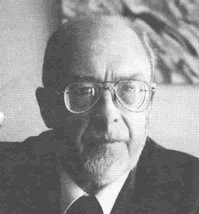 he way to organize your content via the Semantic Web, but these studies are present in Information Science and reference name is JW Lancaster.
he way to organize your content via the Semantic Web, but these studies are present in Information Science and reference name is JW Lancaster.
His book ” Indexação e Resumos: teoria e prática” (Indexing and Abstracting in Theory and Practice, with Brazilian translation made by Briquet Lemos, now in 2nd. Edition) was the first American edition awarded in 1991 by the American Society for Information Science, as best book of the year in the area.
Frederic Wilfrid Lancaster was born in 1933 in England, studied at the Newcastle School of Librarianship from 1950 to 1954, following his career in the public library system of Newcastle. In 1959, he immigrated to the United States, where he worked in private firms and specialized libraries in the development and evaluation of information retrieval systems.
It was one of the first to work the evaluation of databases and do fundamental work in information retrieval, with the classic work called the Medical Literature Analysis and Retrieval System (MEDLARS), who performed at the end of the 1960s, to the National Library of Medicine U.S. (Jackson, 2005).
Went to the University of Illinois in 1970, where he was professor ma Graduate School of Library and Information Science from the University, where he continued advising on development of information retrieval in automated systems, having rendered service to the CIA.
In an article published in 1978, Toward paperless information systems, 1978, and in later works, the author argued for the inevitability of change of publications on paper to a paperless society, perhaps the first person to write about this.
He was a teacher and mentor of the first Brazilian Masters course in the area in the 1970s,
Big Data and Libraries
Technology Data Big Data is poised to revolutionize all aspects of human life and culture 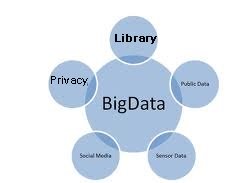 as people collect and analyze large volumes of data to predict behavior, problem solving, safety, and numerous other applications, is what ensures the site Christian Science Monitor.
as people collect and analyze large volumes of data to predict behavior, problem solving, safety, and numerous other applications, is what ensures the site Christian Science Monitor.
The generation of large amounts of data is being driven by the increasing digitization of everyday activities and dependence on electronic devices of people who leave “fingerprints” concept that can be extended to trace “information”, since any object in any state conservation may contain “implicit” that is not yet in a suitable format.
The site CSMonitor cites a large data project which is a remarkable effort by the Library of Congress to archive millions of tweets per day, which can cost a lot of money for its historical value.
.
One example cited is the work of Richard Rothman, a professor at Johns Hopkins University in Baltimore, fundamental save lives.
The Centers for Disease Control and Prevention (CDC) in Atlanta predict flu outbreaks, and does so through the reports from hospitals.
But it took weeks, in 2009, appeared a study where researchers could predict outbreaks much faster through the analysis of millions of Web searches, queries made as “My son is sick” and could learn a flu outbreak long before the CDC knew the reports of hospitals.
But the technologies of large volumes of data also has a boundary claim, in which technology is perceived potential distruir privacy, encourage inequality and promote government surveillance of citizens or others in the name of national security, how to reconcile these two trends ?
Making clouds secure
Cloud computing means outsourcing computing tasks over the Internet, which on one hand can give users home computer processing power and unprecedented that small businesses can use Web services more sophisticated, without building huge banks data servers.
But precisely this outsourcing can lead to huge security problems, since the cloud is treated as a condominium, as can happen cite the article by MIT presented in International Symposium on Computer Architecture, assuming a set of cloud servers can be running 1,000 simultaneous applications to customers, without the knowledge of the exact web hosting service that is provided, such an application has another purpose, to spy on the other 999.
In International Symposium on Computer Architecture recently happened in June, the MIT researchers described a new type of secure hardware component called Ascend, mixing patterns of memory access to a server, which makes it impossible in the case of an attacker infer the data that is stored.
But perhaps only powerful companies and governments are able to use this, what they discuss is who can control and do not control the informal is cool, see how all states treat Snowden, who made the initial complaint data: some country will receive him?
But the solution in Brazil is the Brazilian satellite launch two submarine cables and the installation of a Federal Internet Exchange (FIE) International, here are things like na expensive things.


